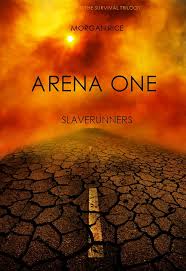I got up this morning with high hopes. (I may not have been bright-eyed and bushy tailed, but wrapped in a fluffy pink robe and shuffling through to the kitchen to get Cheerios still counts as being “up,” even if not fully functional.) Why high hopes on this random day in February? Because I could see across the river, and seeing across the river means that the air pollution is down, which means, hope against all hope, we might see a ray or two of sunshine at some point today.
It may sound a bit ridiculous to be cheered by the sight of a river that is less than 100 yards from my apartment, but we’ve been weeks with a steady haze in Chengdu. For those of you who follow air quality indexes (two years ago I would have asked who in their right mind does that, but after a couple of years working for the State Department as a community liaison office coordinator, I am more well-versed in the science of air junk than I ever imagined I would be), we’ve been running a steady 160-180 for a couple of weeks now. With a bit of overnight rain though, we broke through that depressing gray miasma and when I checked the monitor first thing this morning, we were at an AQI of 80. I can’t remember the last time we were in double digits. This is exciting news in Chengdu-the soup has parted!
Having lived most of my life in Idaho, I’m used to cold winters, but for the most part they were sunny winters. Yes, the Treasure Valley has its annual inversion and I know it is no fun at all for that week or two in January when Bogus Basin is invisible, but Boise at its worst is Chengdu at its best. So, yes, I can do cold winters (I don’t like them and prefer to avoid them, which is why Malaysia is going to be fantastic for the next two winters), but they are survivable as long as that brilliant orb in the sky makes a daily appearance.
Every summer, I convince myself that Chengdu winters aren’t really that bad, while at the same time counseling all of the new officers that they should really plan a vacation to Thailand or Indonesia during January or February. Nothing heads of a bout of seasonal-affective disorder like a few days in Bangkok or Bali. Heeding my own advice would have been a good thing this year. (We did go to Hawaii in January, but I definitely could have used a February-Phuket boost as well.)
It really is that bad.
Luckily, Pope Gregory had the wonderful foresight to make February the shortest month of the year, shortening the amount of time I grumble about winter weather. (Like it or not, when March rolls around, I consider it spring. In my mind, the air is going to get magically better, I’ll be able to put my winter coat away for the last time and say goodbye to my tights for a few years.)
In elementary school, we learned that March “comes in like a lion and out like a lamb,” which I am totally fine with. A lion’s head is surrounded by a giant orange and yellow sphere, which is exactly what I am looking for! (Apparently, I need Thad’s post-Malaysia posting to be in Africa, as my lion-anatomy is heavily reliant on cartoons.)
Elusive Mr. Sunshine has yet to make an appearance yet today, but it is still early. I will keep my fingers and toes crossed that some much needed vitamin D breaks through the smog soon. As for now though, I will content myself with the clear(er) view of the building across the alley and knowing that my lungs will get a bit of respite when I head out to get noodles for lunch this afternoon.
(I must admit to a bit of growing trepidation though, as I just checked the AQI and rather than holding steady in the 80s and I had hoped, we are climbing back up, having passed the triple-digit mark and now sitting at 112. Nevertheless, I’ll keep all ten toes and all ten fingers crossed. Sunshine might still happen.)





